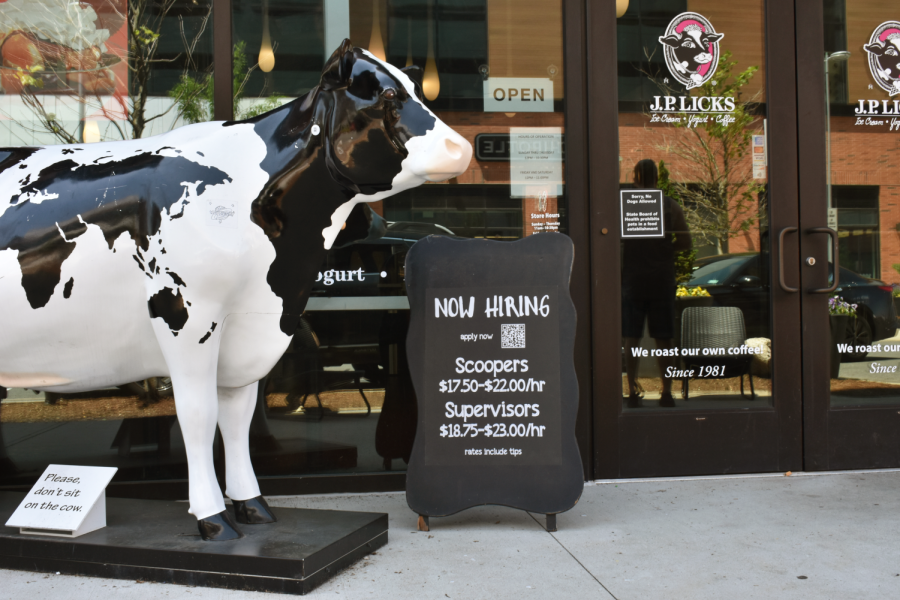It’s All Over… or Is It?
The summer after senior year is a rare chance to travel, spend time with friends and earn money before heading to college. While younger students pursue internships to build up their college applications and resumes, high school seniors have already completed that process and should enjoy their summer break to the fullest extent. Despite this freedom, some seniors have chosen to pursue academic internships, hoping to add another boost to their resumes.
While internships can foster new connections, it is clear that the main motivation is not to learn, but rather a remnant of a competitive mentality. High school seniors should spend their final summer trying something new, such as traveling or working non-academic jobs, before another four years of education.
Traveling is something that almost every adult wishes they could do more of. It gives one a chance to see the world and experience new cultures through food, music and language. Phoebe Clark (II), who is participating in an academic fellowship this year, says, “Next year, I want to spend the summer going to places I’ve never been before. I really want to go to Tokyo.”
During college and after graduation, finding a permanent job and settling down is often a bigger priority than traveling. As the years go by, uprooting stability to explore the world becomes more and more difficult. In addition to seeing what other places have to offer, high school graduates can use traveling as a way to spend time with friends and family.
Both traveling and college, however, cost money. Even though some students choose to work during the school year, most teenagers have trouble balancing multiple shifts with homework, sports and other extracurriculars. Summer allocates time for students to generate the most amount of money with no academic stress and fewer time commitments.
Alice Acker (I), who plans on working this summer, says, “I need money for my expensive college [tuition].” Even though some internships come with stipends or educational grants, working in a non-academic job with the same hours pays upwards of thousands of dollars more. When paying for tuition and other essentials costs, this extra money can make a difference and relieve financial stress.
Due to the competitive nature of the college application process, academic internships are highly sought after by high school students. Internships exclusive to Boston Latin School students, such as the Ward Fellowship, the Seevak Fellowship and the Deitch Fellowship, receive a multitude of applications from people who want to gain connections and professional experience.
Thomas Huska (I) plans to continue his fellowship from last summer by being this year’s coordinator. He says, “I chose to spend my summer doing an internship because of how great my experience was last year. I learned a lot and met some incredible people as a Ward Fellow, so getting to experience that again while also helping other students have a positive experience is something I was happy to do.” While Huska decided to spend his time at an internship, he used his summer to do something he was passionate about.
Even though gaining professional experience can teach valuable lessons, trying to constantly be the best at such a young age triggers an unhealthy mindset that will amplify with age. In addition, putting pressure on other classmates who want to do something enjoyable instead of striving for a fellowship does not create a supportive, healthy environment.
Ginny Durcan (I) says, “In previous summers, I felt pressure to pursue summer programs in STEM mainly because I would see my classmates doing them. I knew that they would have helped gain some experience in the field, but I’d mostly be doing it to build my resume to help me get into college.”
The components for a fulfilling summer depend on what a student’s priorities are. If that priority is earning money for college, a job makes the most sense. If they want to experience something new or spend time with friends, traveling is a great option. An academic internship can open doors in the future, but it does not allow students to spend time with friends and family, see the world or begin the journey to financial independence and stability.
Seniors should take off their school cap and stop stressing about needing to do the most. Summer is the time to be free and have fun. Whether enjoying their summer by traveling or working a non-academic job, they can pat themselves on the back for making it through high school and rest up before college.
As Durcan puts it, “The summer of senior year feels like the last opportunity we have to spend time with the people we’ve known, connected with and grown to love from the last six years of our lives and beyond.”







